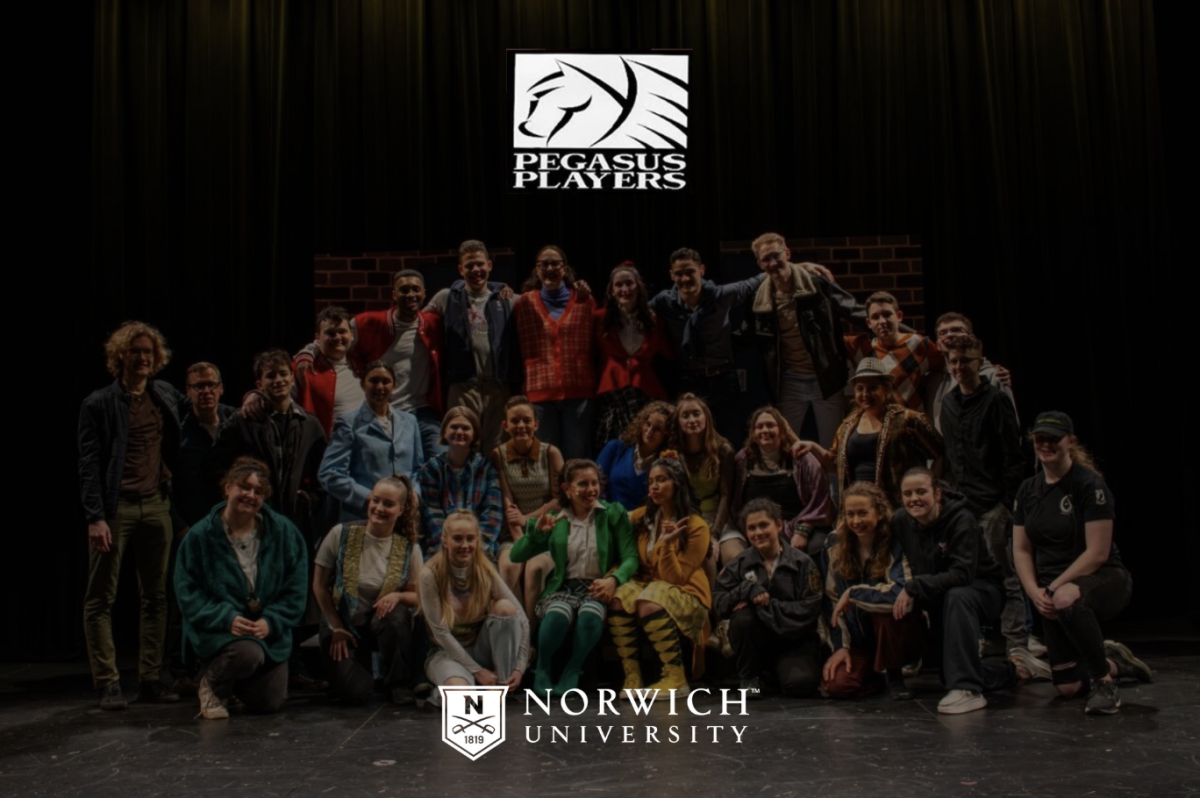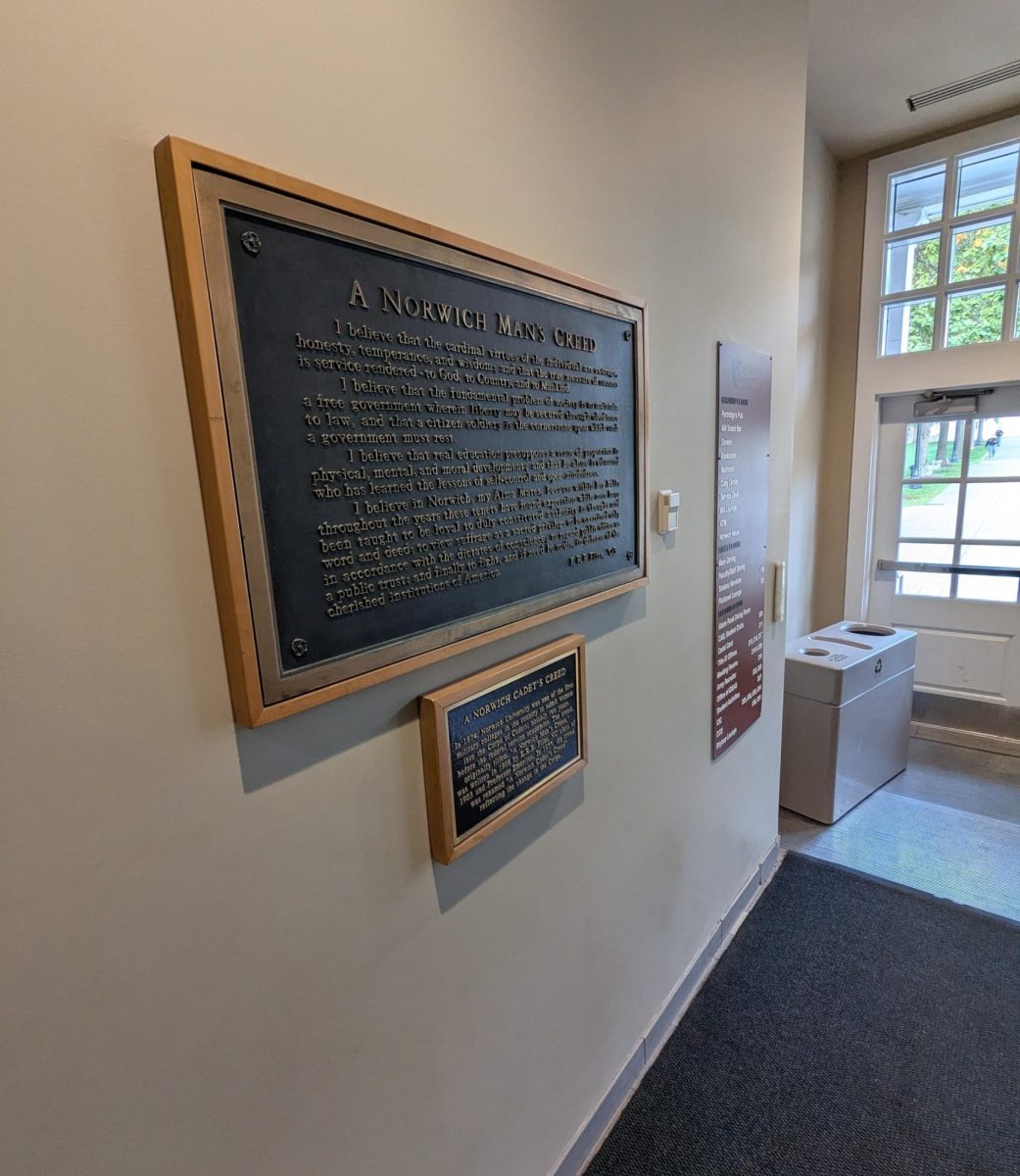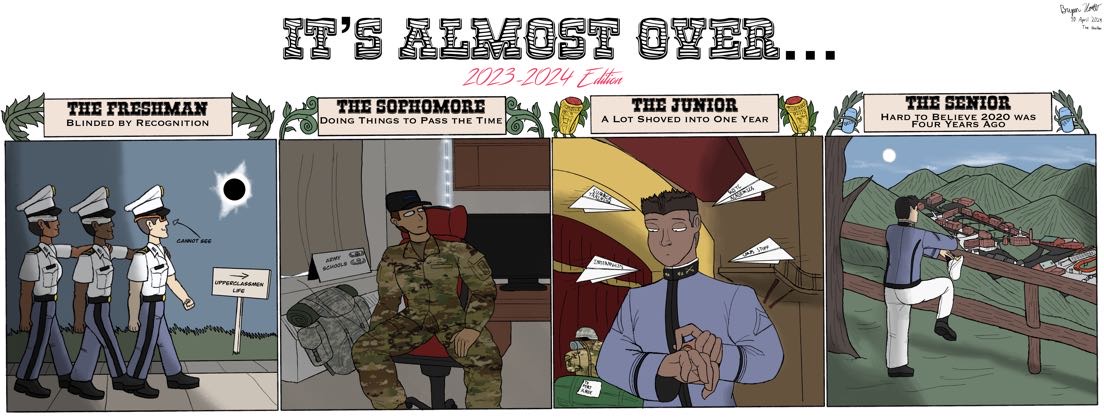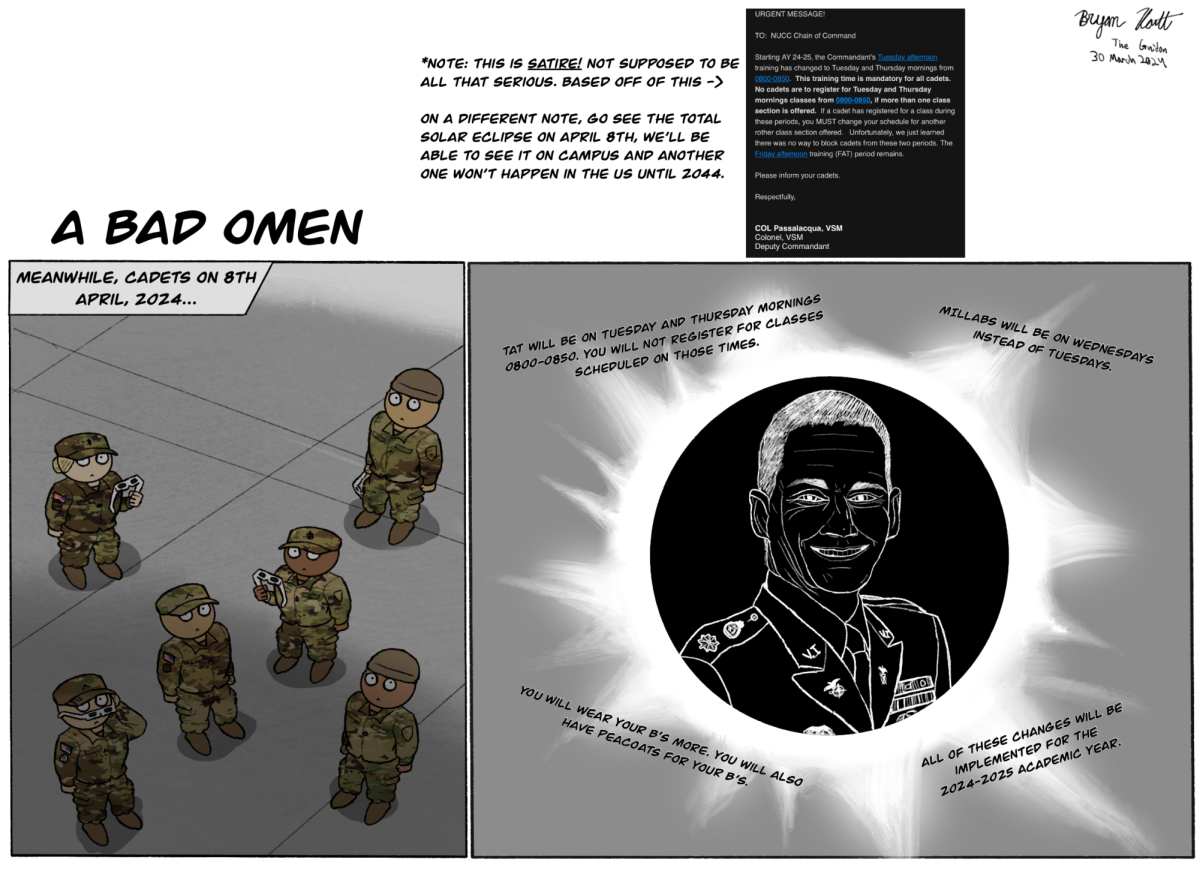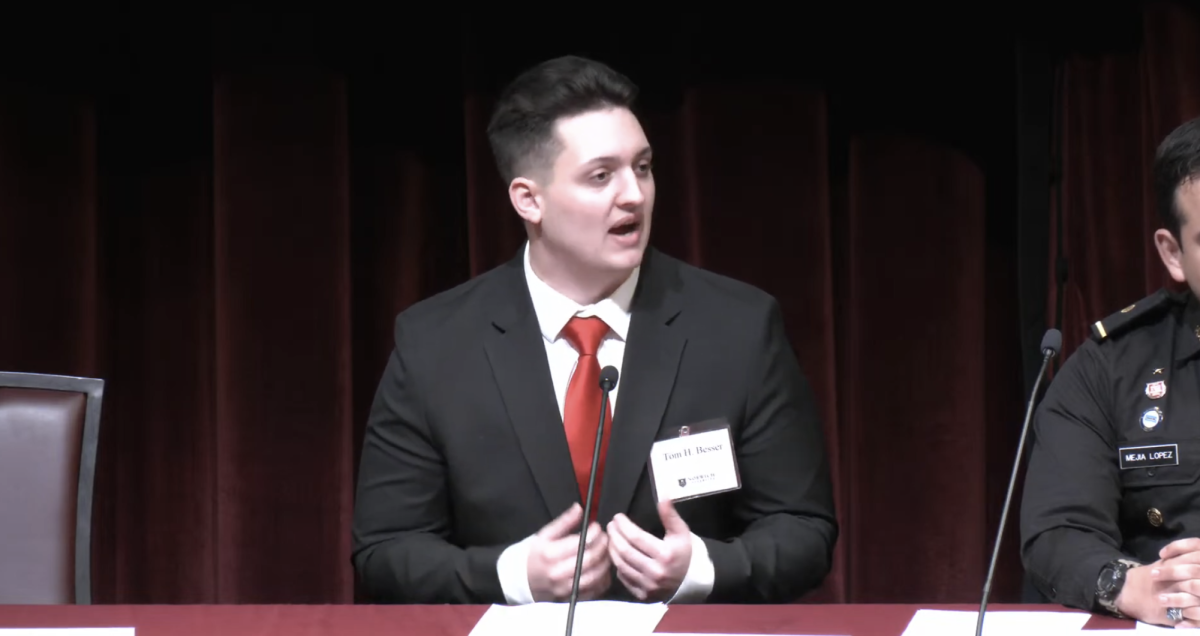
This spring semester at Norwich University marks the end of an era for its students as interest in preserving foreign language programs falters across America.
“This semester was my first German class at Norwich,” said Bryan Weidmann, 19, a sophomore corps of cadet physics major from Massachusetts. “I wanted to get a German minor but then heard it was closing…”
Norwich University has hosted a well-supported German language program for over 33 years. At the end of the 2024 spring semester, the program will shut down following the retirement of current German professor David Ward. This sudden closure leaves several students unable to complete their German minors and even more wondering if German will ever be taught at this school again.
Since the Cold War and the fall of the Berlin Wall, interest and attendance for German courses at Norwich have been on a steady decline. This is particularly related to foreign deployed veterans, who were brought back to America for a time to learn the German language and customs and are now beginning to retire.
“I think the shift from liberal arts to studies science, technology, engineering, and math (STEM) has been what Americans are demanding and governments are supporting, and universities are ending up then offering,” said David Ward, Norwich University’s last remaining German instructor. “That shift leads to deemphasizing the role of language and foreign language studies.”
Now, at the imminent retirement of Norwich’s last acting German professor, this cycle completes itself on home territory. After the close of this spring semester, Ward will enjoy a well-earned retirement after 33 years of service at Norwich.
Following his departure, the university administration team decided to discontinue the German program, not attempting to fill Ward’s vacancy. This decision is informed by the larger cultural language and education tides which are affecting universities across America.
As English becomes a more widespread global language, schools and universities in America have been closing foreign language programs at a prodigious rate. According to an official study report by the MLA, between 2009 and 2013, one foreign language program across United States universities was shut down. Between 2013-2016, 651 total programs were terminated. Between 2016 and 2021, another 961 language programs were closed.
These numbers highlight a drastic and exponentially increasing shift in interest in United States universities and high schools. A study on the educational platform Preply summarizes these statistics: there are no federally mandated foreign language requirements for American students, and only three states, New York, New Jersey, and Michigan, require language learning on a state level. The resulting effect is that only 20 percent of public school students have studied a foreign language, and by college, that number drops to 10 percent.
Meanwhile, numbers provided by the Pew Research Center illustrate that the median of European students studying one or more foreign languages reaches 92 percent.
Considering the emphasis Europe places on learning language and the benefits of cultural immersion while studying such a branch of education, Norwich has offered many years of study-abroad opportunities in Berlin, Germany. This chance to learn German will remain open despite a lack of support from the on-campus program.
“Overall, my experience was very positive,” said Mark Messinger, 21, a civilian senior majoring in history from Massachusetts, who partook in the Berlin program. “Learning German culture can be iffy. You have to really push yourself into those scenarios in Berlin. It’s a very international city.”
Messinger explained that due to the diversity of Berlin’s culture, even those who knew very little, if any, German would still be able to interact with the program and engage with the city. As for applying, Messinger experienced very little difficulty relating to having to “fill out all the right forms.”
Studying abroad in Berlin is not the only program persevering through Norwich, in fact even new language opportunities will be arriving on campus.
Despite a rapid decline in conventional foreign language programs across America, one language is substantially rising. According to the MLA, 44 new sign language programs have opened in universities, and together with Korean (at a growth of 29), these remain practically the only language programs to see an increase in interest. Norwich will be corresponding their future courses to this trend.
“We are starting an ASL program, ‘American Sign Language,’ due to demand,” said Amy Woodbury Tease, chair for the Department of Global Humanities and associate professor of English at Norwich. “We have a wonderful faculty member who is adjusting for us currently. She is working at a high school, and we recruited her to start at the ASL program, which will hopefully have a minor in a few years.”
Additionally, those other languages taught extensively at Norwich –French, Spanish, and Chinese – will continue to be offered.
“It’s crucial, I think, for students at Norwich, given our mission and values, that they study language,” Woodbury Tease said. “Even if their programs don’t require it.”


